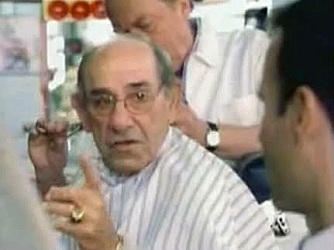Baseball, the game we love, has many faces. First, and most importantly, there is the game played on the diamond. For us purists it is the most perfect of diamonds. Somehow the distance between the bases and distance from home plate to the pitching rubber are the perfect measures for the game. Then there is another game played on the field with another set of rules, often not visible to the naked eye and perhaps not even to the most avid fan. That is, a set of unwritten rules that do influence the game, yet they are not written down in a formal rule book to be followed as are the official rules of MLB.
Outside of the lines there is another game played in the papers and news outlets, the most unattractive and most damaging part of the game, the part of the game that turns fans off. That would be the daily barrage of reporting huge contracts, even to players who are at best very average. The news becomes more about the nature of the contract than the skills of the player. That reporting is too often coupled with the revelation that another player has tested positive for using performance enhancing drugs. This casts dispersion on other players, some very accomplished, leaving a suggestion all are cheating if they are successful in excelling at the most difficult of all athletic competitions. Lastly, there is a language that surrounds the game and tends to define it as boring, a language that repeats itself over and over by those reporting the games. It is a language comprised of clichés too numerous to cite, although some of them have made their way into everyday conversations. Players often recite a litany of clichés in interviews, in among, “…you know …”

We may get tired of the many clichés in baseball, but we never get tired of the Yogisms. “I knew I was going to take the wrong train, so I left early.” (Video capture courtesy of Aflac)
I expect we all have our favorite clichés and perhaps those that we don’t like so well. Baseball jargon has always been there, at least in my time, and will always be with us, just as the lingo of other teams sports will continue to flourish and grow. In itself, the baseball vernacular is not a detriment to the game for the baseball addict, only a bit annoying at times, especially with some color commentators.
Perhaps a couple of clichés that I use most often away from the game are, “…cover all the bases…, and “… backs to the wall…” By covering all the bases we simply mean dealing with all the possibilities in a given situation. Sometimes we get our backs to the wall when the unexpected happens or we have not covered the bases.
On the other hand, there are a couple that I really dislike. One is, “…knows how to win…” Give me a break on that. Everyone knows how to win. That is, hit better, run faster, field better, pitch better, than the opposition and there is a good chance of victory. The problem comes in actually doing just that.
Another cliché that drives me around the bend is, “…giving 110%…” We hear managers say they like a certain player, regardless of his skill level, because he gives 110%. Again, give me a break. It is not possible to give more than 100% without doing it illegally. The body, no matter how wonderful the accomplishments, cannot give more than 100% even when body and psyche are in perfect harmony. Running faster, throwing further, jumping higher, hitting further without performance enhancing drugs, all are simply tapping into the body’s potential and converting it to kinetic energy. The trick is to accomplish that without cheating. Improvements in nutrition, training techniques, equipment, and the all important human will, are all helpful in extending the limits of the body as world records continue to be broken. Nevertheless, the perfect combination of body and mind cannot take the body beyond its 100%, always with some energy still left as potential. The human body is the most amazing machine on earth with unlimited potential. Tapping it is the challenge.

If there is such a thing as giving 110%, few can dispute that former Dodger Jamey Carroll gave it every day. (Photo credit – Jon SooHoo)
So what do managers mean by 110%? I expect they are referring to a level of play that is seen to be the best the player can give. I also expect they mean the player gives that level of effort every game, every at bat, every race to first base, every play in the field, regardless of the score. 110% is merely a comparative score, in my opinion, not compared to the body’s 100%, but seemingly compared to other players who appear not to give their best all the time. That is, they take an AB off, don’t run full out to first base, don’t practice at game speed, perhaps slack it in the field, report out of shape, stand on their laurels.
Who is your candidate for a 110% award?




 November 30th, 2012 at 12:02 am
November 30th, 2012 at 12:02 am  by Harold Uhlman
by Harold Uhlman  Posted in
Posted in 

I really enjoyed this post, and offer two comments:
1) I also never say, “Giving 110%”, what I do say is “Always gives his best”
2) I think that “knowing how to win” is a very real quality! Some people/teams certainly have a propensity to snatch defeat from the jaws of victory. Maybe it’s nerves, maybe it’s confidence, but it’s real. One need look no further than Broxton the last two years with the Dodgers or Steve sax trying to throw to first base to know what I mean. If nothing less, these men forgot how to win!
You may well be correct about knowing how to win Dick. I tend to think it’s a phrase sometimes used to justify an acquisition. That is, a player is signed, and in the press conference says something like, “We are delighted to have player “X” sign with us. He is a proven player who knows how to win.” Having won a World Series doesn’t mean a player knows how to win. eg. Juan Uribe.
I’ve been giving that some more thought Ebbetsfld. Knowing how to win implies knowledge, technical skills, which all players have. We probably agree that some players always expect to win. That is, winning is attitudinal, an expectation, not a surprise, and their play reflects that attitude. I suspect Steve Sax expected to throw wide of first base, so did just that, and Jonathan Broxton feared losing, rather than expecting to win.
In my opinion, cliches are not meant to be taken literally or verbatim and doing so is way over analyzing their true meaning and/or intent. Cliches are nothing more than little sayings that describe things or situations ‘in a nut shell’ (pun intended).
Obviously, in the literal sense (and as you point out, Harold), it is physically impossible to give 110%, but as ebbetsfld suggests, it is better defined as giving everything that you have all of the time. When someone says “giving 110%” we certainly know exactly what they mean or are implying.
Likewise, knowing how to win in the literal sense is, as you suggest, kind of a dumb thing to say, however, it is a very real and tangible attitude. It is really no different than saying a player has heart. Well of course he has heart, if he didn’t he would be dead. But we all know what having heart means – it’s having the attitude, desire, passion, drive, guts and willingness (i.e. – ‘giving everything that you have all of the time’) towards the ultimate goal of winning.
Granted, some cliches are really dumb, but really now… think of how boring life (and language) would be without them – unless, of course, they are being said by Yogi Berra.
Thanks again for yet another great post.
I find the best thing for me to do, is follow the team, through thick and thin (another cliche’?) and just simply hope for the best. There are teams that seem to have players that seem to be giving more than 100% (110%). They seemed to be able to make themselves win, like they know they can beat you because they are better than you and they usually do. Other than that it always seems to me that they’re always giving 100%
Playing “with their backs against the wall”, always meant to me as playing your best while you are on the brink of defeat or in the jaws of defeat.
This was a great article BD, I liked it a lot.